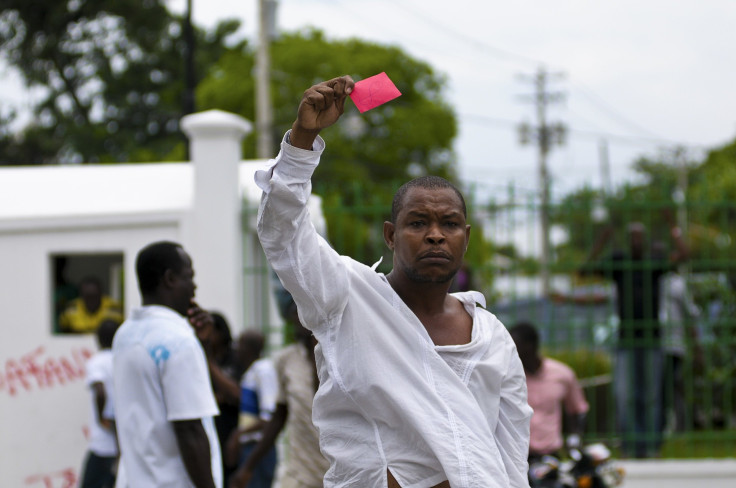Haiti's Poor Want President Out Over Rising Living Costs

Amid rising food prices and living costs in Haiti, thousands of people took to the streets on Sunday in the capital of Port-au-Prince, calling for President Michel Martelly’s resignation over accusations of corruption and a perceived failure to deliver on promises to alleviate poverty.
Martelly, a pop music star turned politician, was elected into office in May 2011 with 68 percent of the vote. He had campaigned on improving living conditions in the Western Hemisphere’s poorest nation, where half of the population of 10 million lives on less than one dollar a day and 80 percent lives on less than two dollars a day, according to the World Bank.
“The president has made so many promises, but nothing has become a reality," said protester Max Dorlien, the Associated Press reported. "It's only a clique of his friends who are making money."
Many of the poorest living in the slums of Port-au-Prince and still recovering from the devastating magnitude 7.0 earthquake in January 2010 have complained that the government has not done enough to help them, staging several protests in recent weeks.
Over 350,000 people are still living in tents and makeshift shelters nearly three years after being displaced by the earthquake, while unemployment is estimated at over 40 percent, according to the CIA World Fact Book.
Rising food prices are a major concern as the country depends on foreign imports for over half of its food supply, according to the U.N. World Food Program.
Increasing droughts, floods and extreme weather caused by climate change have decreased agricultural output among food-exporting countries and steadily driven global food prices up, while further decimating domestic agriculture in Haiti, which is already threatened by food imports and environmental degradation.
The Haitian government has acknowledged that it needs to develop domestic agriculture in order to protect against price fluctuations in global markets.
“[W]e must invest in our production, so that when the [international food] prices go up and down, we have our own production,” said Prime Minister Laurent Lamothe last month after the government imported an additional 300,000 sacks of rice from Japan in an effort to stabilize food prices, Haiti Libre reported.
“What happens is that we depend on international markets, over which we have no control, to buy strategic and sensitive food, such as rice, oil or sugar.”
The Martelly administration said it had also set up a commission last month to address rising living costs, but a negative perception of the government persists among protesters.
“Martelly is wasting the meager resources of the country to buy luxury vehicles and for international trips that don't bring anything to the country," said Edner Rosier, another protester, Al Jazeera reported.
Protesters are also demanding compensation for the victims of the cholera outbreak that followed the earthquake and claimed over 7,000 lives.
© Copyright IBTimes 2024. All rights reserved.











